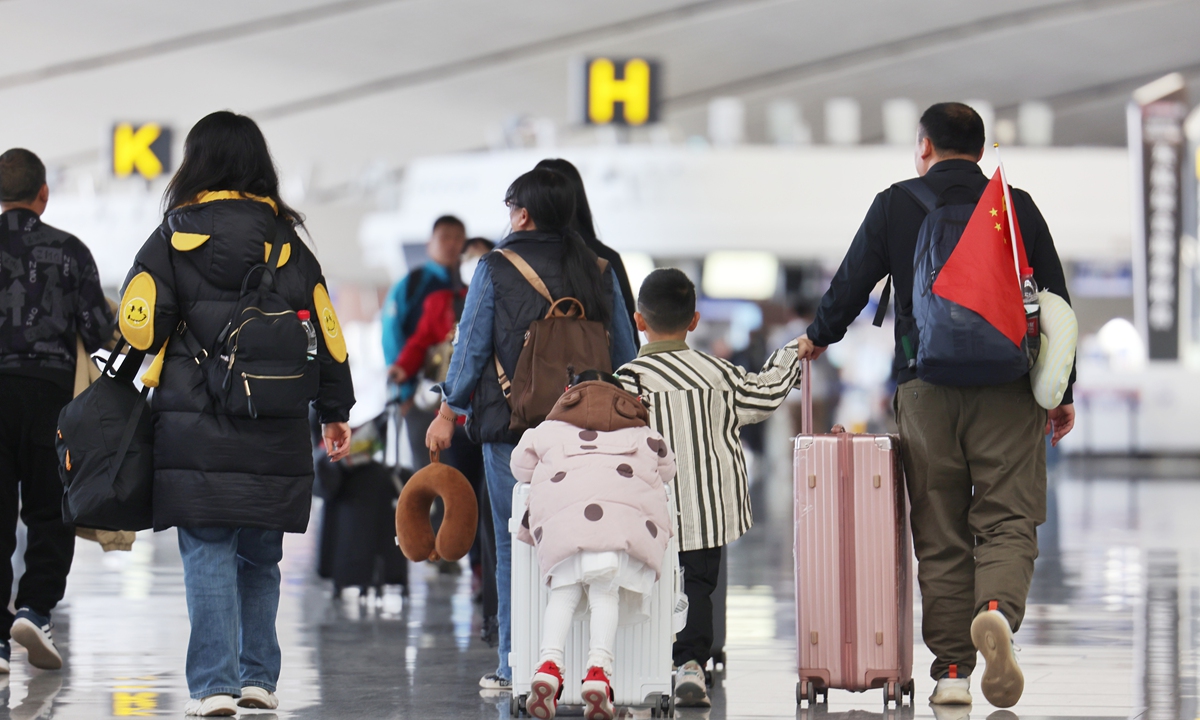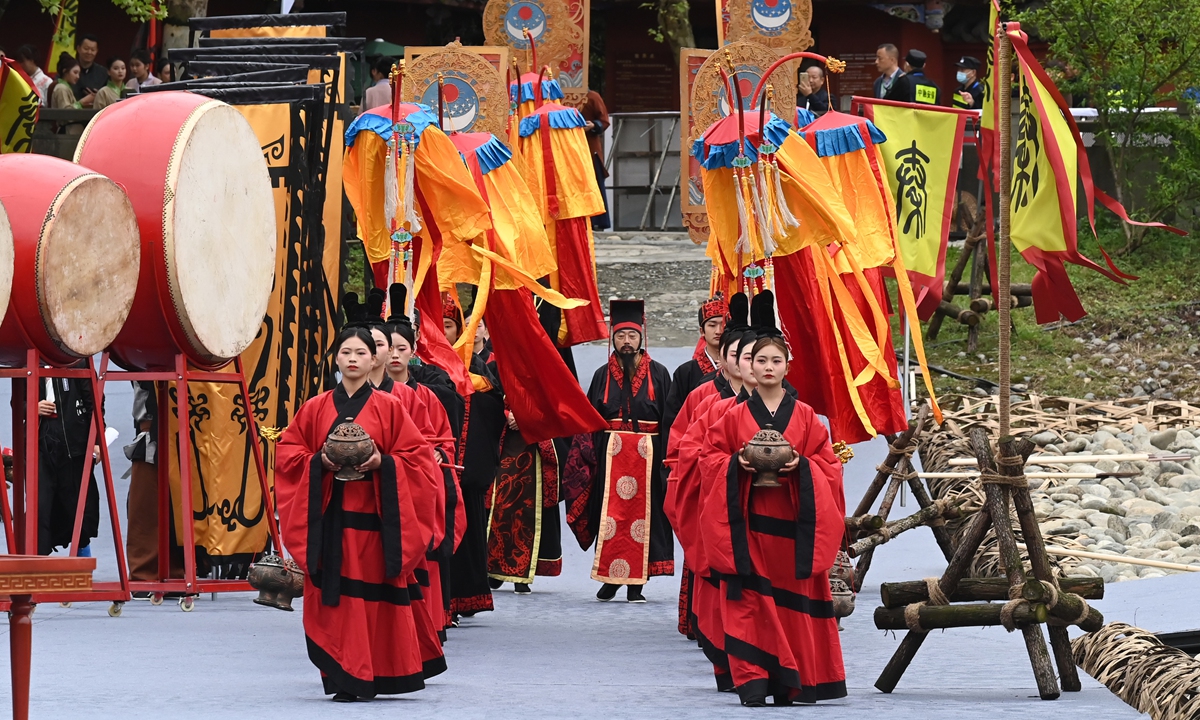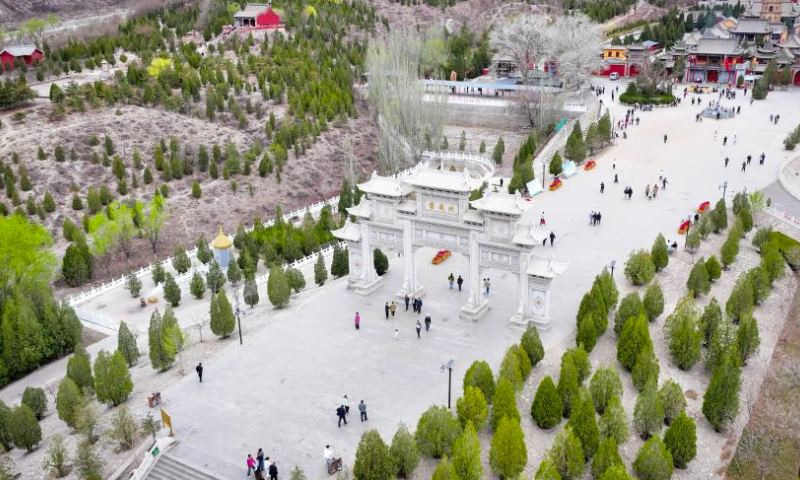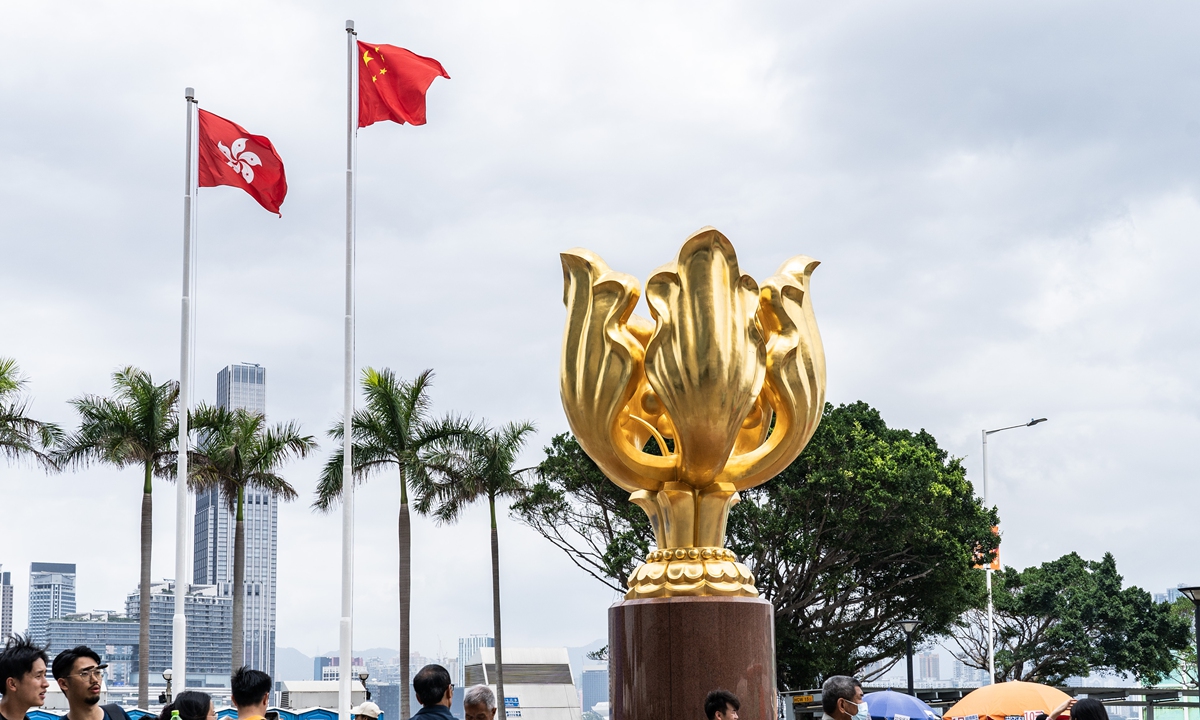
Photo: Courtesy of Beijing Daxing International Airport
Chinese third- and fourth-tier cities - and even smaller ones - are set to be popular during the upcoming May Day holidays, per industry data, as market watchers said the trend shows that China's tourism market is steadily recovering, which will further boost consumption.According to data from Ctrip, China's online travel agency, domestic long-distance travel bookings account for 56 percent of total orders during the May Day holidays, with many tourists opting for lower-tier cities as their destinations. Hotel bookings in county-level markets have seen a year-on-year increase of 68 percent, while orders for scenic spot tickets surged by 151 percent.
Driven by concerts, music festivals and social media accounts of local authorities, third-tier and lower-tier cities have seen a surge in popularity. Data from Tongcheng Travel show that compared with core cities, there has been a relatively larger increase in demand for train and plane tickets to third-tier and lower-tier cities during the upcoming holidays.
The hotel booking index for third-tier and below cities has increased by 76 percent year-on-year, nearly a threefold increase compared with 2019. The popularity of train and plane tickets to third-tier and below cities during the May Day holidays has increased by more than 360 percent on a week-on-week basis, according to Tongcheng Travel.
Changing consumer habits could be one of the reasons, which means people are shifting away from crowded popular cities and attractions toward places with unique natural landscapes and local customs, Wang Jinwei, a professor at the School of Tourism Sciences at Beijing International Studies University, told the Global Times.
Driven by the rural revitalization strategy, efforts to promote rural civilization have created a favorable cultural environment, and this trend has brought more popularity to rural regions, Wang explained.
Zhang Zonggang, a Beijing resident, told the Global Times she plans to visit Mangshi, a city in Southwest China's Yunnan Province, with her relatives during the coming holidays. "We prefer to avoid crowded places as we'll be with children and are seeking to experience the leisurely and tranquil lifestyle of the small town. It's also cost-effective compared with the first-tier cities."
Market watchers said that rising travel demand in third- and lower-tier cities will boost consumption.
China's GDP grew by 5.3 percent in the first quarter of 2024, well above market expectations as the world's second-largest economy got off to a robust start. Data from National Bureau of Statistics showed that retail sales grew 4.7 percent year-on-year to 12.03 trillion yuan ($1.66 trillion) in the first quarter.
The popularity of tourism in third-tier and lower-tier cities will not decline; instead, it will become a major trend for Chinese tourists, said Deng Ning, a vice dean of the School of Tourism Sciences at Beijing International Studies University.



